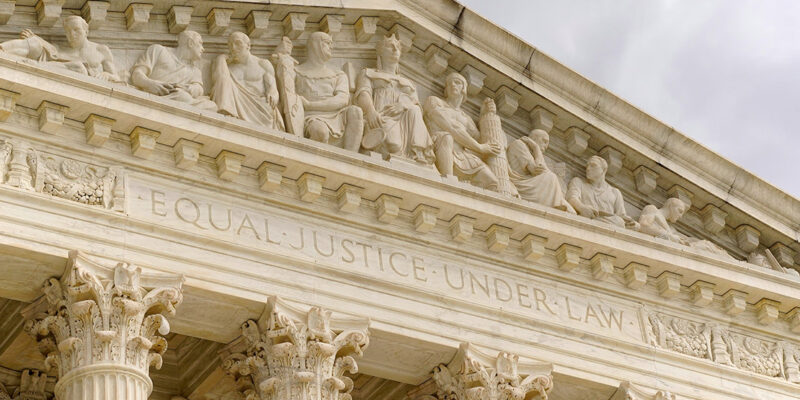Supreme Court Term 2023-2024
We’re breaking down the cases we've asked the court to consider this term.
Latest Case Updates
Ongoing
Updated December 11, 2024
Ongoing
Updated November 20, 2024
Ongoing
Updated November 4, 2024
Ongoing
Updated October 31, 2024
Featured
Georgia
Nov 2024
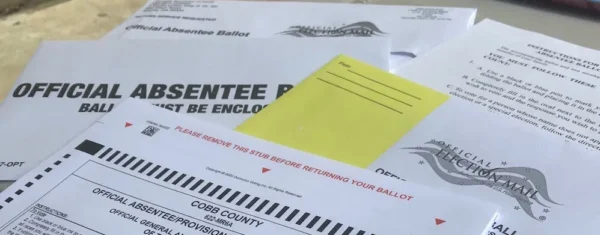
Voting Rights
Ayota v. Fall
On October 31, 2024, just five days before the November 5 General Election, Cobb County announced that it had failed to send more than 3,000 absentee ballots to Cobb County voters who had timely requested them. Many of these voters are at school hundreds of miles away or have disabilities that make it all but impossible to vote in person. The ACLU and co-counsel sued on behalf of affected voters to ensure that they would not be disenfranchised because of the County's administrative error.
U.S. Supreme Court
Oct 2024
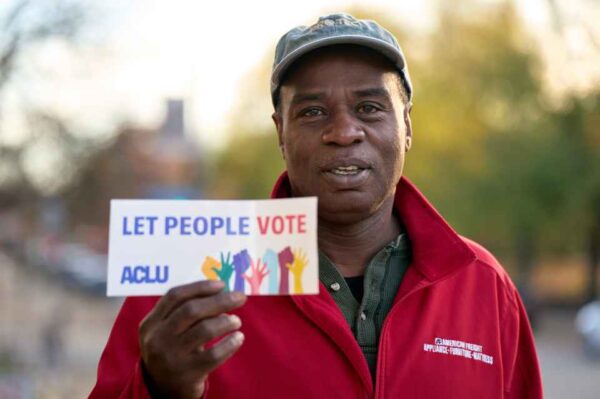
Voting Rights
Republican National Committee v. Genser
Voters in Butler County, Pennsylvania made a mistake in voting their mail ballots in the April 2024 primary election, forgetting to use the required secrecy envelope. Because their mail ballots could not be counted, they went to the polls in Election Day and voted provisional ballots. The County later determined that it would not count their provisional ballots, and the voter’s appealed, arguing that Pennsylvania law requires that when an eligible voter attempts to vote by mail but the mail ballot is rendered void due to some defect like lacking a secrecy envelope, the eligible voter may cast a provisional ballot and have that ballot counted notwithstanding the failed attempt to vote by mail.
Georgia
Oct 2024

Voting Rights
Eternal Vigilance Action, Inc. v. Georgia
The ACLU and partner organizations have sought to intervene in this case to represent the rights of voters and voting-rights organizations in a case challenging a number of rules passed by the Georgia State Election Board. We challenge a rule that requires that the number of votes cast be hand counted at the polling place prior to the tabulation of votes. This rule risks delay and spoliation of ballots, putting in danger voters’ rights to have their votes count.
Texas
Oct 2024
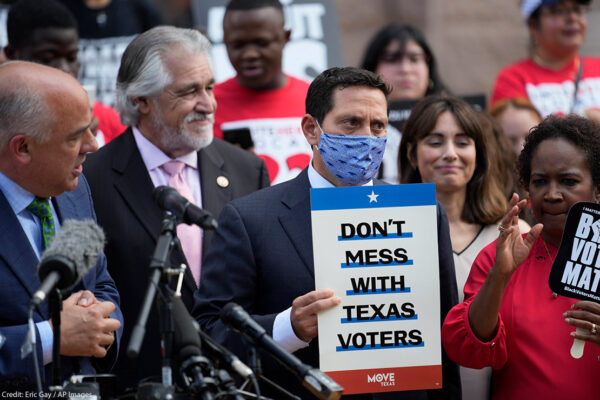
Voting Rights
OCA-Greater Houston v. Paxton
Texas has growing Hispanic and Black populations that helped propel record voter turnout in the November 2020 election. The Texas Legislature responded to this increased civic participation with an omnibus election bill titled Senate Bill 1—SB 1 for short—that targeted election practices that made voting more accessible to traditionally marginalized voters like voters of color, voters with disabilities, and voters with limited English proficiency. Since 2021, SB 1 has resulted in tens of thousands of lawful votes being rejected, and it remains a threat to democracy in Texas.
Michigan
Sep 2024
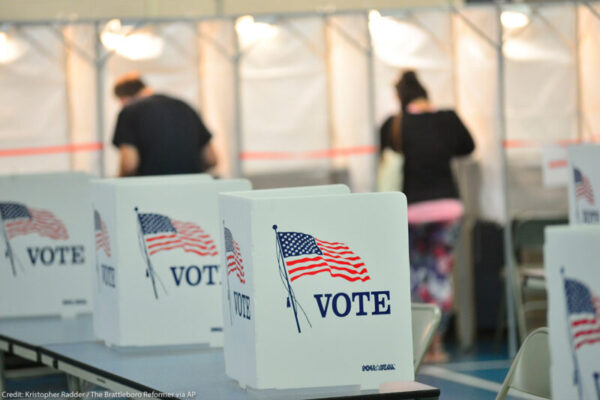
Voting Rights
ACLU of Michigan v. Froman
Michigan requires boards of county canvassers to certify the results of an election within 14 days after the election based on the total number of votes reported from each location. The law doesn't allow them to withhold certification. Kalamazoo Board of County Canvassers member, Robert Froman, has made clear that he would decline to certify the November 2024 election under certain circumstances. This lawsuit asks the state's courts to make clear that Mr. Froman is duty bound to certify the election based on the number of votes reported.
Ohio
Sep 2024

Reproductive Freedom
Planned Parenthood Southwest Ohio Region et al., v. Ohio Department of Health, et al.
The American Civil Liberties Union, the ACLU of Ohio, Planned Parenthood Federation of America, the law firm WilmerHale, and Fanon Rucker of the Cochran Law Firm, on behalf of Planned Parenthood Southwest Ohio Region, Planned Parenthood of Greater Ohio, Preterm-Cleveland, Women’s Med Group Professional Corporation, Dr. Sharon Liner, and Julia Quinn, MSN, BSN, amended a complaint in an existing lawsuit against a ban on telehealth medication abortion services to bring new claims under the Ohio Reproductive Freedom Amendment, including additional challenges to other laws in Ohio that restrict access to medication abortion in the state.
U.S. Supreme Court
Sep 2024

Voting Rights
Callais v. Landry
Whether the congressional map Louisiana adopted to cure a Voting Rights Act violation in Robinson v. Ardoin is itself unlawful as a gerrymander.
Ohio
Jul 2024
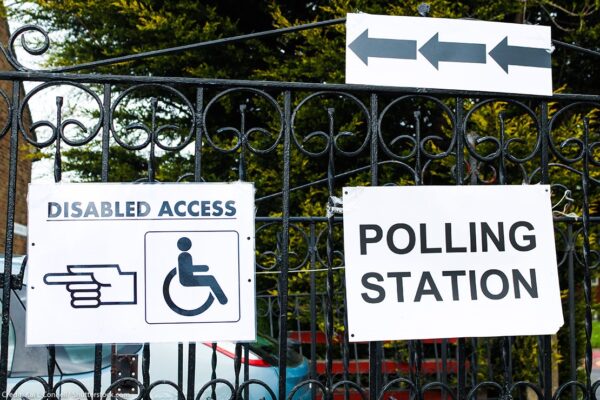
Voting Rights
League of Women Voters of Ohio v. LaRose
In Ohio, HB 458 makes it a felony for any person who is not an election official or mail carrier to return an absentee voter's ballot—including voters with disabilities—unless the person assisting falls within an unduly narrow list of relatives. We are challenging the law because it violates Section 208 of the Voting Rights Act (VRA) and the American with Disabilities Act (ADA) by making it exceedingly difficult for voters with disabilities to cast their ballots.
U.S. Supreme Court
Apr 2024

Reproductive Freedom
Idaho and Moyle, et al. v. United States
Idaho and Moyle, et al. v. United States was appealed to the U.S. Supreme Court by Idaho politicians seeking to disregard a federal statute — the Emergency Medical Treatment and Labor Act (EMTALA) — and put doctors in jail for providing pregnant patients necessary emergency medical care. The Supreme Court heard oral arguments on this case on April 24, 2024. The Court’s ultimate decision will impact access to this essential care across the country.
All Cases
1,507 Court Cases

Maine
Oct 2024
Religious Liberty
Crosspoint v. Makin
The ACLU, ACLU of Maine, and Americans United for Separation of Church and State filed an amicus brief with the U.S. Court of Appeals for the First Circuit arguing that religious schools in Maine participating in Maine’s school tuition program must comply with all eligibility requirements of the program, including a prohibition on discrimination against students based on their religion, sexual orientation, and gender identity.
Explore case
Maine
Oct 2024

Religious Liberty
Crosspoint v. Makin
The ACLU, ACLU of Maine, and Americans United for Separation of Church and State filed an amicus brief with the U.S. Court of Appeals for the First Circuit arguing that religious schools in Maine participating in Maine’s school tuition program must comply with all eligibility requirements of the program, including a prohibition on discrimination against students based on their religion, sexual orientation, and gender identity.
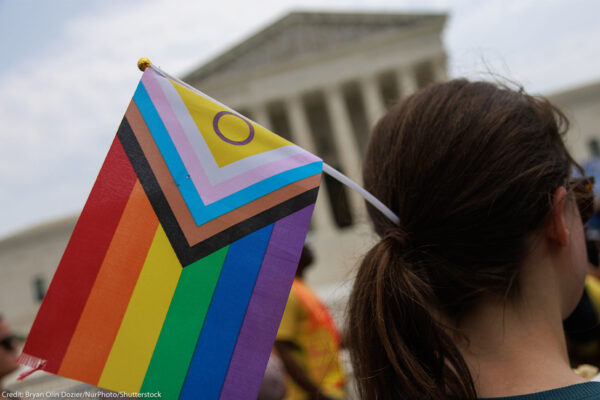
Washington
Oct 2024
LGBTQ Rights
Religious Liberty
Aubry McMahon v. World Vision, Inc.
On October 28, 2024, the ACLU and ACLU of Washington filed an amicus brief in the U.S. Court of Appeals for the Ninth Circuit supporting affirmance of a Washington district court decision holding that a religiously affiliated nonprofit organization violated Title VII and the Washington State antidiscrimination law when it rescinded a hiring candidate’s job offer because she is a woman married to a person of the same sex. Should the Ninth Circuit accept the organization’s First Amendment defense—that religious organizations can discriminate on any basis so long as it is grounded in their religious belief—it would gut employment protections for LGBTQ individuals and pave the way for religious organizations to discriminate on the basis of not only sex, sexual orientation, and gender identity but also other protected characteristics like race, color, and national origin.
Explore case
Washington
Oct 2024

LGBTQ Rights
Religious Liberty
Aubry McMahon v. World Vision, Inc.
On October 28, 2024, the ACLU and ACLU of Washington filed an amicus brief in the U.S. Court of Appeals for the Ninth Circuit supporting affirmance of a Washington district court decision holding that a religiously affiliated nonprofit organization violated Title VII and the Washington State antidiscrimination law when it rescinded a hiring candidate’s job offer because she is a woman married to a person of the same sex. Should the Ninth Circuit accept the organization’s First Amendment defense—that religious organizations can discriminate on any basis so long as it is grounded in their religious belief—it would gut employment protections for LGBTQ individuals and pave the way for religious organizations to discriminate on the basis of not only sex, sexual orientation, and gender identity but also other protected characteristics like race, color, and national origin.

Court Case
Oct 2024
Reproductive Freedom
Preterm-Cleveland v. David Yost
On September 2, 2022, the American Civil Liberties Union, the ACLU of Ohio, Planned Parenthood Federation of America, and the law firm WilmerHale filed a lawsuit in the Hamilton County Court of Common Pleas bringing a state constitutional challenge against SB 23, a law banning abortion starting at approximately six weeks of pregnancy. This lawsuit came more than two months after the draconian bill took effect on June 24, 2022 for the first time since it was passed in 2019, causing an immediate, devastating crisis across the state. Due to the ongoing irreparable harm to Ohioans, the reproductive rights organizations withdrew the lawsuit they initially filed in the state Supreme Court in late June and asked the lower court to grant immediate relief blocking the ban.
Explore case
Court Case
Oct 2024

Reproductive Freedom
Preterm-Cleveland v. David Yost
On September 2, 2022, the American Civil Liberties Union, the ACLU of Ohio, Planned Parenthood Federation of America, and the law firm WilmerHale filed a lawsuit in the Hamilton County Court of Common Pleas bringing a state constitutional challenge against SB 23, a law banning abortion starting at approximately six weeks of pregnancy. This lawsuit came more than two months after the draconian bill took effect on June 24, 2022 for the first time since it was passed in 2019, causing an immediate, devastating crisis across the state. Due to the ongoing irreparable harm to Ohioans, the reproductive rights organizations withdrew the lawsuit they initially filed in the state Supreme Court in late June and asked the lower court to grant immediate relief blocking the ban.
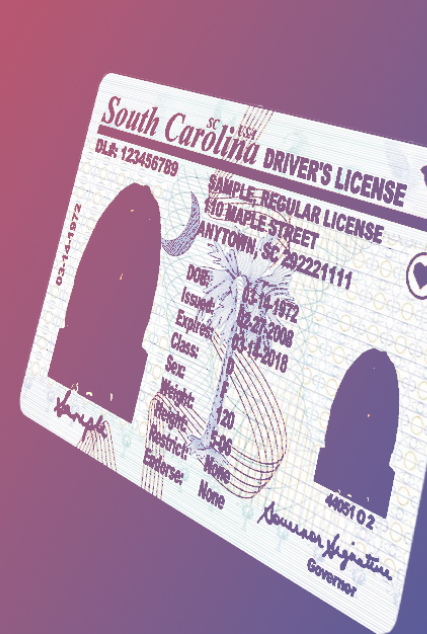
South Carolina
Oct 2024
Voting Rights
American Civil Liberties Union of South Carolina v. State Election Commission
The South Carolina Department of Motor Vehicles (SCDMV) has unlawfully denied young, eligible South Carolinians the opportunity to register to vote. Under South Carolina law, individuals who are 17 years old may register to vote and vote in primary elections so long as they (1) will turn 18 on or before the next general election, and (2) otherwise meet the qualifications for voting. An administrative error in the SCDMV's processes, however has stopped the Department from transmitting the proper paperwork to complete all registration information to the South Carolina Elections Commission. As a result, thousands of young voters who did everything right and should have been registered to vote have not been added to the state's voter rolls in the runup to the 2024 general election. ACLU and ACLU of South Carolina have sued, asking the court to ensure that these new voters are registered and properly notified in time for them to vote in the November 2024 election.
Explore case
South Carolina
Oct 2024

Voting Rights
American Civil Liberties Union of South Carolina v. State Election Commission
The South Carolina Department of Motor Vehicles (SCDMV) has unlawfully denied young, eligible South Carolinians the opportunity to register to vote. Under South Carolina law, individuals who are 17 years old may register to vote and vote in primary elections so long as they (1) will turn 18 on or before the next general election, and (2) otherwise meet the qualifications for voting. An administrative error in the SCDMV's processes, however has stopped the Department from transmitting the proper paperwork to complete all registration information to the South Carolina Elections Commission. As a result, thousands of young voters who did everything right and should have been registered to vote have not been added to the state's voter rolls in the runup to the 2024 general election. ACLU and ACLU of South Carolina have sued, asking the court to ensure that these new voters are registered and properly notified in time for them to vote in the November 2024 election.

Ohio
Oct 2024
LGBTQ Rights
Moe v. Yost
Two transgender adolescents and their families are challenging Ohio’s House Bill 68, a law passed in January 2024 that prohibits gender-affirming medical care that is widely accepted to treat gender dysphoria, helping alleviate the distress of gender dysphoria and significantly improving patients’ mental health and well-being. Such treatment is supported by leading medical experts and all major U.S. medical organizations, including the American Medical Association, the American Psychiatric Association, and the American Academy of Pediatrics.
Explore case
Ohio
Oct 2024

LGBTQ Rights
Moe v. Yost
Two transgender adolescents and their families are challenging Ohio’s House Bill 68, a law passed in January 2024 that prohibits gender-affirming medical care that is widely accepted to treat gender dysphoria, helping alleviate the distress of gender dysphoria and significantly improving patients’ mental health and well-being. Such treatment is supported by leading medical experts and all major U.S. medical organizations, including the American Medical Association, the American Psychiatric Association, and the American Academy of Pediatrics.
